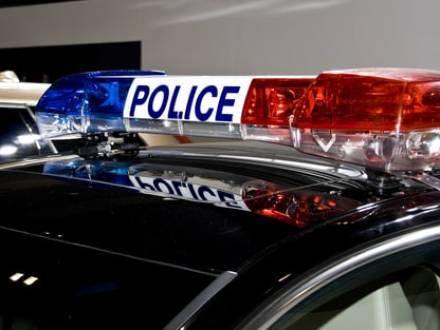Can I Legally Turn Around at an Illinois DUI Checkpoint?
 Perhaps you have been to an after-work party to celebrate the retirement of one of your co-workers. You have an enjoyable time and leave the party to drive home, confident that you are not impaired because you only had a couple of beers. Then, on your way home, you realize that there is a DUI checkpoint up ahead.
Perhaps you have been to an after-work party to celebrate the retirement of one of your co-workers. You have an enjoyable time and leave the party to drive home, confident that you are not impaired because you only had a couple of beers. Then, on your way home, you realize that there is a DUI checkpoint up ahead.
You weigh your options – the slightest chance that you might test above the 0.08 percent BAC, against looking for a place to turn around and finding a different way home. Or, perhaps you do not even realize there is a DUI roadblock until you are there, with no way to turn around. If you are facing DUI charges, it is extremely important that you speak to an experienced Grundy County, IL DUI lawyer.
What Are the Requirements for Legal Sobriety Checkpoints?
Under Illinois Statute, sobriety checkpoints are only legal when they are conducted in a non-arbitrary and systematic manner. The police must have a plan for stopping vehicles, which avoids the appearance of choosing only cars where the driver, at a mere glance, seems impaired. Often, the police will choose to stop every fourth vehicle or something similar.
There must have been a high incidence of DUI arrests or DUI-related accidents at the checkpoint location, and the checkpoint must be clearly marked with signage that also indicates the presence of police officers. The stops should be brief, allowing only sufficient time to determine whether the driver of the vehicle could be inebriated.
Can You Turn Around at a DUI Checkpoint?
In most cases, if you have not yet reached the front of the line at the roadblock you can turn around. There is no legal requirement that you must go through a DUI checkpoint. That said, if a police officer sees you turning around to avoid a DUI checkpoint, there is a high likelihood that the officer will follow you and pull you over to determine whether you are driving while impaired.
In People v. Timmsen, the defendant turned around approximately 50 feet from the DUI checkpoint, only to be followed, pulled over by a police officer, and cited for driving with a revoked license. The court, in this case, found that the action of turning around – along with other facts - amounted to an "evasive" action that suggested wrongdoing, giving the police probable cause to pull over a person who evades a DUI roadblock.
The Illinois Supreme Court further noted that avoiding a checkpoint on its own does not amount to reasonable suspicion to pull over a driver, but when taken "in totality," the stop in the Timmsen case was justified. The court stated that because it was 1:15 a.m., the roadblock was well-marked, and the defendant was a scant 50 feet from the checkpoint, all those things together amounted to reasonable suspicion to pull over the defendant.
If you decide to turn around once you realize there is a DUI roadblock ahead, make sure to do it well before you reach the front of the line. Pulling into a side road or a gas station, when possible, will help you avoid the appearance of purposely evading the checkpoint. Once you are at the front of the line and have been stopped, you must provide your driver’s license and proof of insurance.
You do not have to answer questions, and you are not required to take field sobriety tests or a portable breathalyzer test. Politely ask to call your attorney. At the station, you must submit to a breathalyzer or blood test or risk losing your driver’s license even if you are not convicted of a DUI.
Contact a Will County, IL DUI Lawyer
If you have been charged with DUI, the sooner you have an experienced Grundy County, IL DUI attorney on your case, the better your chances of avoiding a conviction. It is important to have legal representation from an aggressive criminal defense attorney who will advocate for your rights and your future throughout the legal proceedings. Call 815-740-4025 to schedule your free consultation.
















